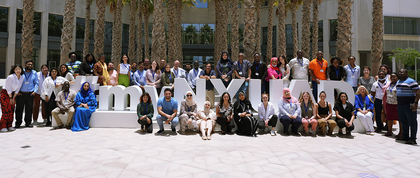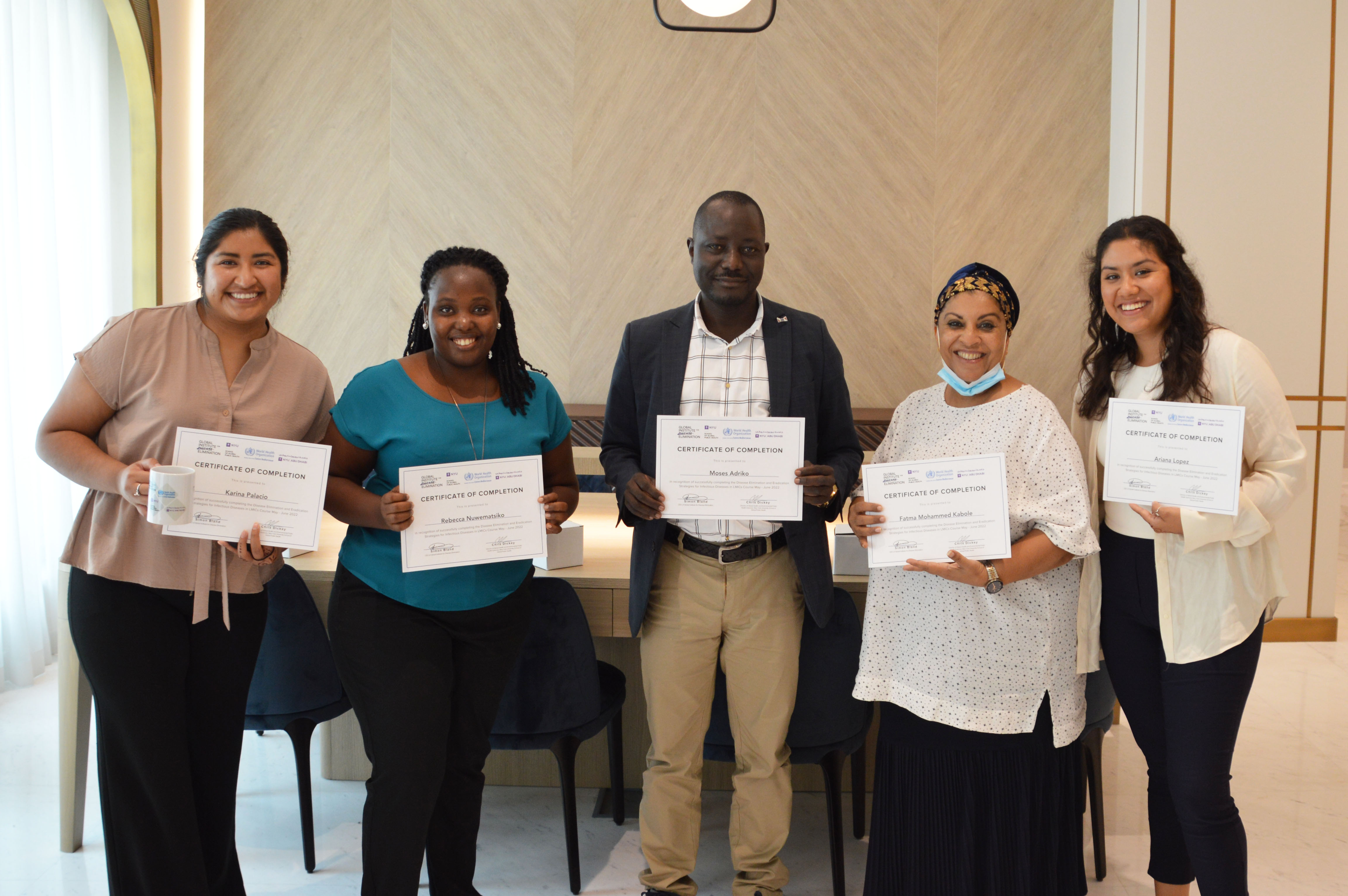
Disease elimination and eradication are near the top of the list of the most challenging public health initiatives, especially when resources are limited. Since the 1950s seven eradication programs have been launched, though only one has been successful so far: smallpox was declared to be eradicated by the World Health Assembly in 1980.
To that end, GPH’s Global & Environmental Public Health Program, in collaboration with the Global Institute for Disease Elimination (GLIDE), developed a hybrid course in “Disease Elimination and Eradication Strategies for Infectious Diseases in LMICs.'' It consists of online modules on the principles and history of disease elimination and eradication, ethics and human rights, case studies on the prevention and treatment of neglected tropical diseases, integrated approaches to disease elimination and eradication, and an introduction to systems thinking. These modules were followed by an intensive live portion over eight days on the NYU Abu Dhabi campus, allowing for collaboration among students and practitioners from the field to develop and present proposals for eliminating or eradicating an infectious disease within a specific geographic context.
Pictured: Students listening to lecture.
The Disease Elimination class welcomed 53 participants, including GPH graduate students; disease elimination program managers from Cameroon, Togo, Malawi, South Sudan, Pakistan, Egypt, and other countries; and government and WHO staff from the Eastern Mediterranean and African regions. At the conclusion of the course, 11 teams presented their final strategies to a set of expert judges. The winning project was “A Pilot Intervention: Reducing Trachoma Prevalence in the NE Region of Uganda.” Teams also devised proposals for other diseases such as trachoma, schistosomiasis, onchocerciasis, measles and malaria.

The winning team pictured left to right: Karina Palacio (NYU), Rebecca Nuwematsiko, Moses Adriko, Fatma Kabole Ariana Lopez (NYU)
The course was co-taught by Drs. Chris Dickey and Moaz Abdelwadoud along with several guest facilitators and content experts, including Dr. Erma Manoncourt, Dr. Rana Jawad, Dr. Daniel Boakye, and Dr. John Chimumbwa. GLIDE facilitators included senior technical advisor Dr. Lisa Bryde and technical advisor Diana Yousef. GLIDE and the WHO Eastern Mediterranean Regional Office sponsored the program alongside GPH. GLIDE provided funding to cover the hotel, transportation and most of the meals, which allowed GPH students with more limited resources to participate.